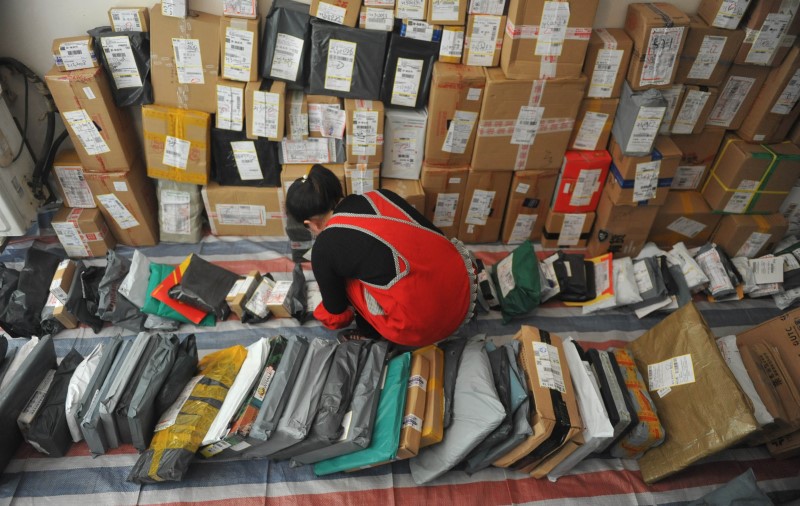Workers in China’s domestically-owned private enterprises earned considerably less and experienced lower wage growth last year than those employed in the state-sector and companies with overseas investment, official data shows.

Sorting a never-ending supply of packages for a logistics company
Urban employees in the private sector earned just 49,600 yuan on average last year, an 8.3 percent increase over 2017, or 6.1 percent in real terms, according to data from the National Bureau of Statistics (NBS) released on 14 May. During the same period, the average annual wage of urban employees outside the private sector reached nearly 82,500 yuan, an increase of 11 percent over the previous year.
The NBS defines the “nonprivate sector” as state-owned enterprises, collective enterprises and companies with overseas investments etc.
The NBS data, based on a survey of 2.4 million companies, correlates closely with the findings of China Labour Bulletin’s Strike Map last year. Of the 1,701 incidents recorded on the Strike Map in 2018, 1,246 (73.3 percent) occurred in domestic private enterprises, 11.6 percent in state-owned enterprises, and just 2.9 percent in Hong Kong/Macau/Taiwan/foreign-funded enterprises and joint-ventures. That proportion has remained constant this year with 379 of the 526 collective protests recorded so far occurring in private enterprises.
The majority of worker protests in the private sector are related to the non-payment of wages, social insurance arrears, layoff compensation etc. and occur in a wide range of industries. Nearly half of all protests recorded in the private sector (167 in total) so far this year were in wide range of service, retail and transport industries, including many in internet-based companies such food delivery giants Meituan and Ele.me that have seen regular strikes this year by drivers protesting arbitrary pay cuts etc.
An annual wage of 49,600 yuan translates to about 4,130 yuan per month for workers in the private sector. This is barely a living wage even in smaller cities, and clearly a lot of workers earn a lot less than the average wage.
Apart from paying about two-thirds more on average than private enterprises, state-owned and foreign-owned companies generally offer better benefits and more stable employment. However, as the recent lay-offs at US-owned tech giant Oracle show, job security cannot be guaranteed anywhere.
As the protracted Sino-US trade war continues, and the domestic economy slows further, there is a higher probability that the number of labour disputes in China will increase, even in state and foreign-owned companies.
